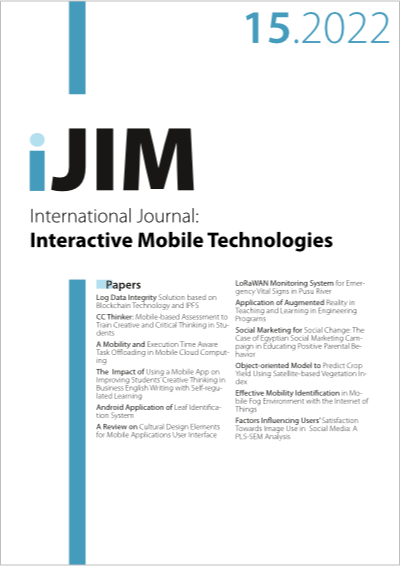Effective Mobility Identification in Mobile Fog Environment with the Internet of Things
DOI:
https://doi.org/10.3991/ijim.v16i15.31501Keywords:
Mobility, Location, Migration, Fog nodes, IoTAbstract
Fog extends the cloud to be closer to the end devices so that it acts on IoT data within a millisecond. Almost 60% of data can be analyzed that is physically near to the IoT data. This proximity has various advantages, including reduced latency, which improves the user experience. However, because the distance to a fog service may vary as a user moves from one location to another, user mobility may restrict such benefits in practice. A fog service migration is based on a mitigation approach that allows the service to always be close enough to a user. Quality of Service is decreased because of the mobility of the user’s location. Predicting the future location in advance improves the efficiency of service provisioning. In this work, a dynamic mobility model is proposed to find the user location in advance. This experiment was carried out by LuST mobility data set collected by Luxembourg Simulation of Urban Mobility (SUMO) Traffic (LuST). This result is give better accuracy of location prediction up to 98.87% when compared with existing methods.
Downloads
Published
How to Cite
Issue
Section
License
Copyright (c) 2022 Jothi K R, Deepa

This work is licensed under a Creative Commons Attribution 4.0 International License.


